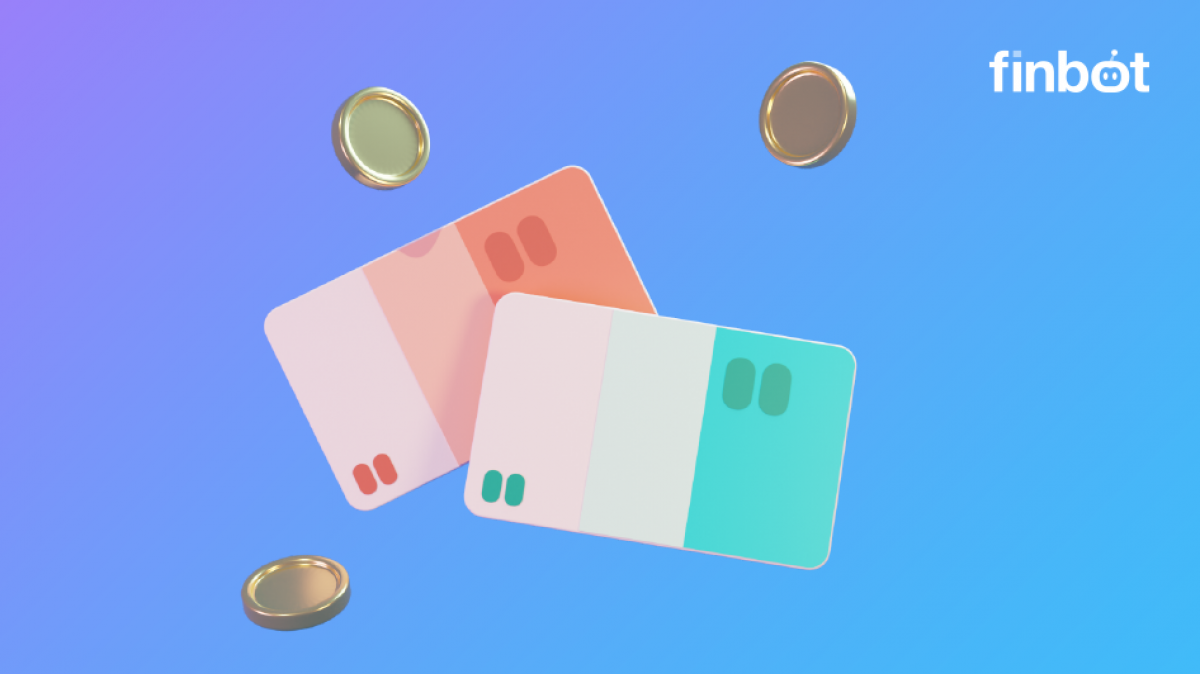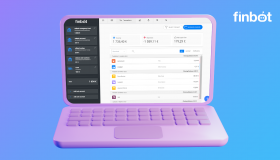5 steps to order your personal finances
Juraj Hrbatý | Personal finance | 30. November 2021

If you have saved money just for this purpose and even the increased spending in the summer period did not unsettle you, congratulations. You belong to a minority of people who do not leave their (financial) future to chance. If you have not yet discovered the magic of financial planning, I will try to explain to you the benefits of a responsible approach to personal finances.
No one enjoys living paycheck to paycheck, praying that the washing machine or fridge will not break down. You would also be more comfortable knowing that all of your expenses for the upcoming period are covered and that you still have enough money for unexpected events. This is not an unrealistic goal. Even seemingly minor changes can fundamentally change your life. Let's see how:
1. Track your spending
If you want to set your personal finances right, you should first create an overview of how much you spend and on what exactly. So, in the first phase, try to keep a record of all your expenses for at least one or two months. You will be surprised at where you waste your money and in what amounts.
Don’t worry, you will not need a pencil and a paper. Time has changed, a mobile app can help you track your spending or you can rely on your bank's electronic banking statement if you pay everything with your credit card or. by bank transfer.
Next step is to divide your expenses into fixed expenses, which are repeated every month and cannot be significantly influenced (e. g. loan repayments, rent, energy payments, etc.) and variable, which may fluctuate from month to month (food, drugstore, clothing, hobbies and others).
Also calculate your total monthly incomes. If you cannot remember them, check your employer's paycheck or bank statement. Do not forget to add any rental income or income from other sources. Adding all of your incomes will create your personal budget income side. If you do not want to be in debt, you have just found the limit of your maximum possible spending.
2. Set your priorities straight
Go through each expense item by item and think whether you want to increase, decrease, or eliminate it entirely. Surely you will find expenses, without which the quality of your life won’t change. If you have loans with an interest rate higher than 5%, consider consolidating them or repaying them early.
You will probably have much more space for an improvement in the variable spending section, so spend more time with it. If you were surprised that you spent tens of euros on useless things over the course of the month, consider making better use of that money.
In case you do not put your money in the savings regularly, find a place for it in your budget. Even at the expense of making cuts in other areas.
If you manage to cut your monthly expenses by 80 euros and decide to invest this amount, you will have approximately 45 291 euros in 20 years. After 30 years, your regular monthly investment of 80 euros appreciates to approximately 111 761 euros. This is a significant result if you think of it as saving less than three euros a day, isn’t it?
Try looking at all of your expenses this way. Budget cuts are not always painful. If you spend 60 euros per month on a coffee with a colleague from work, you can greatly reduce this amount and still enjoy it: once in a coffee shop, once at your place, once at hers ...
3. Try to automate, what can be automated
Once you've created your budget, set up rules that you will follow. Do not rely on memory. It is best to set up direct debits or standing orders for regular recurring payments, such as savings and investment account transfers, energy payments, internet and phone payments, etc.
Regular payments will automate your need for constantly reviewing (or ignoring) your financial commitments and goals. Nobody would like to plan every month on whether they can afford to pay all of the loan repayments, how much money they actually need to put into the future, or whether they will have something left to survive until the next paycheck.
4. Start saving and investing now
If you do not have any money left at the end of the month, send them to your savings or investment account as soon as you receive your income. Over time, you will learn how to get by with the remaining amount without any problems. It's just a matter of priorities and habit.
If you haven't set up an emergency fund, ideally covering at least 6 months of your expenses, start with it. Without an emergency fund, even a small financial emergency could have big consequences (a short-term loss of income, a broken car, etc.). Next goal should be an investment in order to ensure higher pension, or it could be used for other goals such as purchase of real estate, wealth building or savings for children.
Bank savings accounts can also help you fund your short-term goals. For example, if you plan to have bigger expenses in half a year (for example, buying gifts for Christmas or a summer holiday), the best way to do this is to save the necessary funds gradually in advance.
But with this type of saving do not count on the appreciation of your money. Currently interest rates in banks and even in savings accounts are equal to zero. The only reason why this accounts are being used is to separate money from the current account. So, looking at your current account balance will not mislead you into thinking that you can spend more than you can actually afford.
5. Go through your budget regularly
The budgeting process will help you clarify your financial and life priorities. However, these will change over time, so any budget that you create will need to be adapted to your current situation sooner or later.
Changes in your income, payments, or your needs and goals mean that you have to go through the process again. But speaking from experience, I can assure you that the second time will be much easier and more fun.




